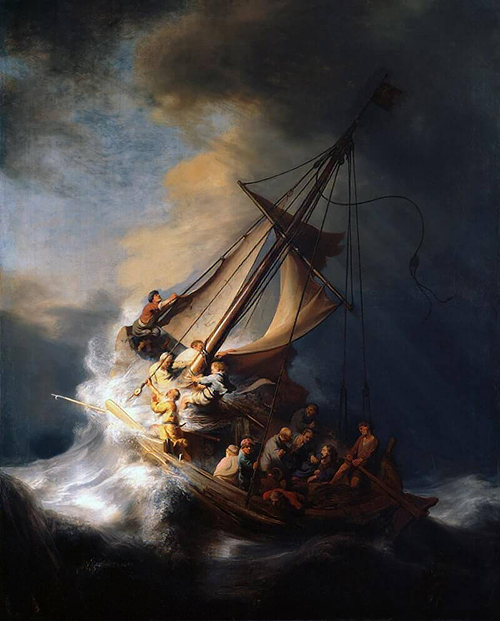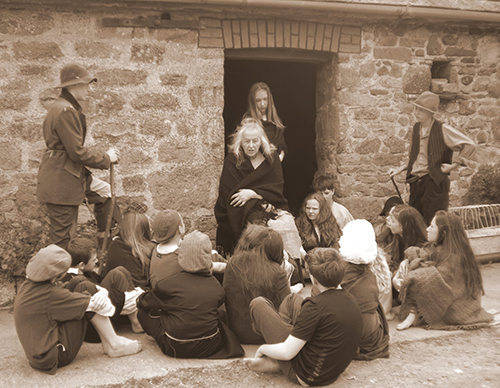
The short and dramatic Gospel of Jesus getting into a boat with his disciples following only to be rocked around with windswept seas swamping the boat and Jesus being asleep is captured quite dramatically in a painting by the Dutch artist Rembrandt van Rijn.
The painting is titled “The Storm on the Sea of Galilee”.
The painting’s very size is dramatic as it measures 5ft high by 4ft wide.
It is the only seascape painted by Rembrandt.
When one counts the figures on the boat there are fourteen! All the disciples, Jesus and who?
Look closely, there is the figure of a young man holding onto a piece of rope and looking directly at you – it is Rembrandt himself!
If you are familiar with the self-portraits of Rembrandt one recognises the distinct similarity between the two, (e.g. “Self-portrait in a cap, wide-eyed and open-mouth, 1630).
[This painting is completed only three years after the self-portrait.]
The painting, I suggest is a wonderful picture of discipleship and indeed, Church.
If you seriously want to follow Jesus, you need to get into the boat.
Firstly, we are all in the same boat; secondly, some are trying to put the boat right (to save it themselves! – notice the five “busy” figures in the top left of the painting!
Others are desperately trying to awaken Jesus – bottom right, so that he puts it right!
Then there is an individual too busy with vomiting over the side of the boat to be bothered with the sails or Jesus.
And, if you have located the young Rembrandt (he has a green covered pullover, hand knitted by his auntie of course), you will see one figure sitting, looking forward seemingly distant from the two areas of activity!
Some in our Church choose to sit without being involved!
The Storm on the Sea of Galilee was previously in the Isabella Stewart Gardner Museum in Boston. Early in the morning of March 18, 1990, two thieves disguised as police officers robbed the museum of thirteen works worth some $500 million – the greatest known property theft in history.
Among the works was The Storm on the Sea of Galilee.
Today, when you visit the museum, you encounter an empty frame where once hung the painting.



